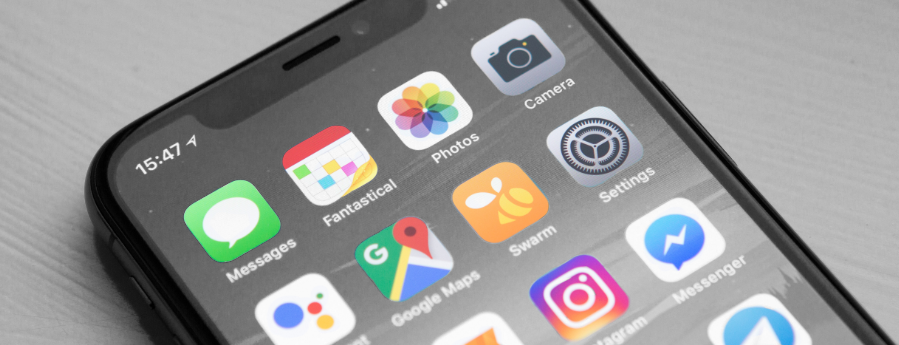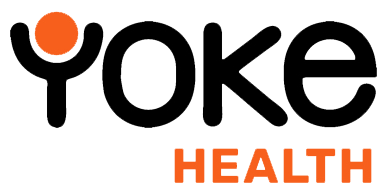Top 5 Digital Innovations Healthcare Agencies Need To Know About
Posted in Digital Healthcare Insights
Matt Davies - Head of strategy & Innovation.
With the rapid advancement of technology today, digital healthcare agencies need to adopt the latest systems or risk falling behind in a rigorously competitive market.
Whilst a number of digital innovations will dramatically change the healthcare industry, deciding which technologies are worth the investment is a difficult decision.
Emerging technologies can have a positive impact by enabling digital healthcare agencies and pharmaceutical companies to better educate and treat patients, and make the lives of healthcare professionals a little easier (if that’s possible).
In this article, we take a look at some of the emerging technologies that are most likely to transform healthcare.
Patient Mobile Apps
The rise in consumers adopting mobile technologies is driving the increase of mobile-tech in healthcare as well. Consequently, mobile devices are commonplace in healthcare settings and play a central role in reducing the number of patients congregating in waiting rooms.
A survey conducted by the online magazine, Physicians Practice revealed 76% of primary caregivers rely on mobile tech for their practice. The benefits mobile apps offer for individual patients will see mobile-tech increasingly adopted by physicians and other healthcare professionals as well.
Today’s medical apps offer a number of uses that can be categorised across the board from emergency healthcare to general appointments and healthy lifestyle advice.
The rapid growth of medical software applications can be used to arrange diagnostic tests with an accurate set of data. Personal mobile apps can track how much exercise patients do, assess their dietary habits and needs, and monitor their medication.
Mobile apps are also a great tool for engaging customers and providing them with relevant information. The technology can also ease the workload of physicians and admin staff thus significantly reducing the typical operational costs that are synonymous with healthcare agencies.
3D Animation, Augmented and Virtual Reality
The adoption of 3D animation, including augmented and virtual reality is making a significant impact across multiple industries.
Healthcare professionals and therapists are also exploring the possibility of adopting virtual reality (VR) and augmented reality (AR) technologies to train staff, educate patients and incorporate it into alternative treatment methods.
VR is already being used to treat patients with a wide range of mental disorders. Therapists have seen significant changes in patients suffering from certain phobias, anxiety, ADHD, psychosis, pain, behavioural conditions and post-traumatic stress disorder.
VR and AR can also be used to treat patients and aid the recovery process. VR allows developers to create interactive and immersive experiences that can help patients relax, relieve pain, and adjust their awareness of bodily signals.
In recent years, the use of 3D animation has been used to help healthcare agencies to explore other medical conditions such as congenital heart defects, burns and chronic conditions.
3D animation is also being used to develop bionic limbs which can detect muscle movement with intuitive life-like precision.
Although these technologies are still in the infant stages within the healthcare industry, development has been rapid and experts anticipate these 3D technologies will be adopted by digital healthcare agencies on a wide scale by 2025.
Artificial Intelligence
According to the 2017 Global State of Artificial Intelligence survey published by Forrester in, 57% of businesses are using AI to improve customers service and support.
AI technology is also expected to revolutionise the healthcare industry in the coming years. A BGV study indicates the public and private sectors will invest $6.6 billion by 2021.
Big data has been instrumental in the development of AI in the healthcare industry. Scientists have been able to uncover a significant amount of clinical information that was previously unknown.
In addition to improving customer services and increasing sales, AI has huge potential to help doctors make informed decisions, and in some situations, replace judgement with facts.
AI in the healthcare industry has the potential to assist surgeons in the operating theatre, categorise diagnostic data and assist with administrative workflows.
Blockchain
One of the most talked-about technologies across multiple industries is the blockchain. This disruptive technology has the power to restructure digital ecosystems and increase the privacy and security of healthcare data.
Blockchain technology creates a decentralised system which makes it impossible to breach or corrupt data and make digital transactions more secure.
The technology can be used to develop a consistent set of rules that allow or refuse various organisations to access patient data from remote locations – speeding up the process of referrals and second opinions.
Moreover, clinical data can be used to help researchers find cures, discover innovative treatments for various diseases and manufacture effective drugs.
Voice Search
Digital marketing for pharmaceutical companies and healthcare agencies could soon be impacted by the rise of voice search. Voice-activated services on mobile phones and an increase in homeowners investing in smart assistants such as Amazon Echo and Apple HomePod.
Statistics show healthcare is the second most active industry for voice search. Subsequently, digital healthcare agencies need to establish a voice search strategy now.
There are a number of ways voice assistants can be used by patients. For example, disabled people that cannot use their hands, or people having a heart attack or stroke can call for an ambulance or relevant medical assistance.
The biggest challenges for healthcare digital marketing agencies is ensuring their business can easily be identified for local emergencies and in general searches.
Patients attending hospitals and clinics can also use voice assistants to help medical staff evaluate symptoms, process data and increase efficiency in administering treatment.
Inpatients can also find answers to basic questions such as what time’s lunch and where’s the nearest toilet without having to call for assistance from the staff nurse.
Healthcare Revolution
Innovative technologies have positioned healthcare agencies on the precipice of a major revolution and the time for investment is now.
Although many initiatives are still in their early stages, the potential for digital technologies to make a significant impact is evident.
Investing in healthcare technologies makes sense from a financial standpoint. These technologies can improve the quality of care medical agencies provide to patients, develop better treatments, save time and cut operational costs

Monthly Archives
- July 2023
- July 2020
- June 2020
- May 2020
- April 2020
- March 2020
- February 2020
- January 2020
- December 2019
- October 2019
- September 2019
- August 2019
- July 2019

